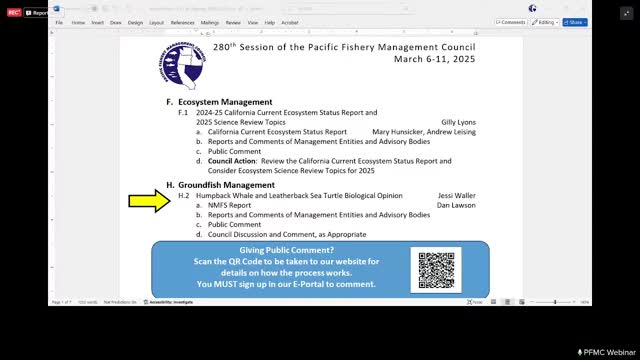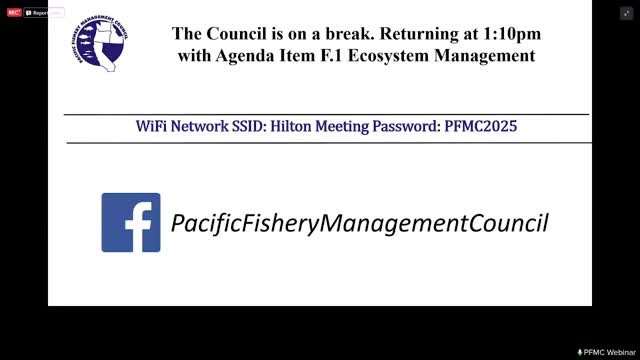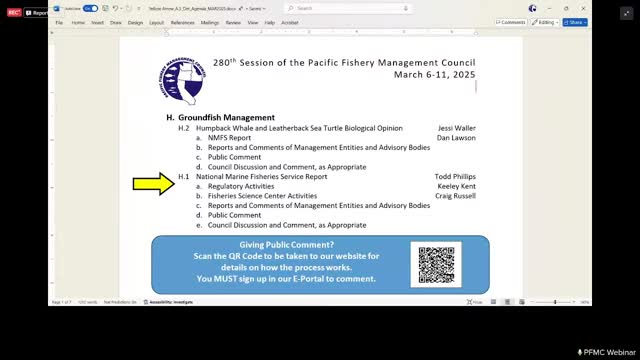Article not found
This article is no longer available. But don't worry—we've gathered other articles that discuss the same topic.

NOAA issues biological opinion on groundfish fishery: not likely to jeopardize humpback DPSs or leatherback turtles, NMFS presents monitoring and reporting term

NOAA scientists present 2024–25 California Current ecosystem report; council to pick SSC review topics

